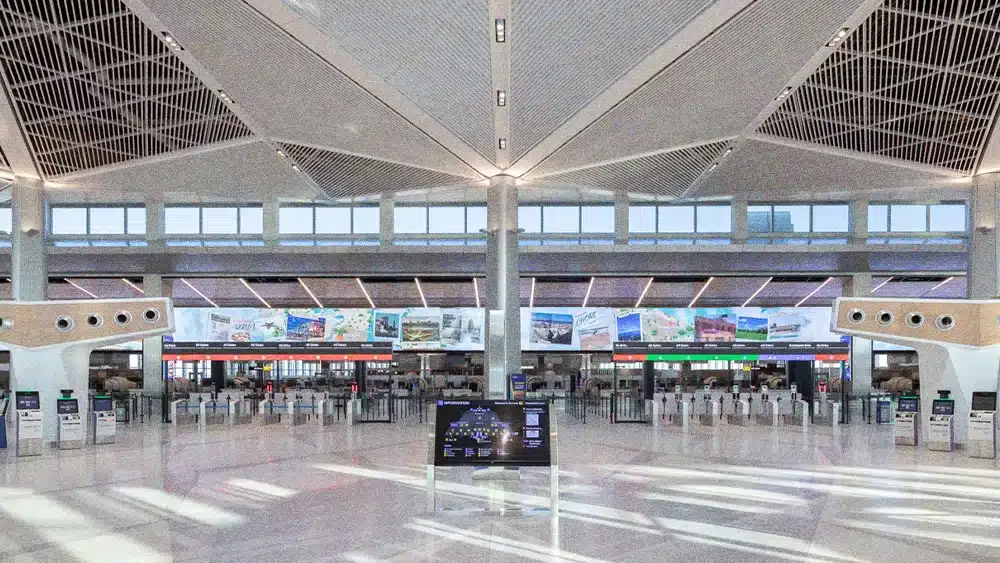
Credit: newarkairport.com
Newark's air traffic crisis exposes urgent need for U.S. aviation overhaul
Key points
- A major aircraft tracking failure at Newark Liberty International Airport highlights the urgent need for an overhaul of the U.S. aviation infrastructure.
- The FAA acknowledges its antiquated air traffic control system and plans to unveil a new system to improve reliability.
- The Port Authority and state officials are pressing the FAA for immediate action on staffing and technology upgrades.
The dangerous loss of aircraft tracking at Newark Liberty International Airport on April 28th, causing massive delays, serves as a stark wake-up call for the U.S. aviation system. This "unacceptable" failure, as one top official described it, intensifies pressure on the government to fast-track a complete overhaul of aging U.S. aviation infrastructure and address severe staffing deficits.
With major international events like the World Cup looming, New Jersey's Governor Phil Murphy warns, "We expect millions of additional passengers next year... and must avoid additional disruptions or strains on the system."
Systemic failures exposed: The Federal Aviation Administration itself admits, its "antiquated air traffic control system is affecting our workforce," and is now working to bolster telecommunications reliability in the New York area. Echoing the urgency, U.S. Transportation Secretary Sean Duffy declared the current system "is not effective to control the traffic that we have today," promising to unveil plans for an "all-new air traffic control system" this week.
Human toll and operational impact: The strain on Newark's controllers from "multiple recent outages" led some to take time off to recover, according to the FAA. This staffing crunch directly impacted operations, compelling United Airlines to slash 35 daily flights from its Newark hub. United CEO Scott Kirby stated bluntly, "This particular air traffic control facility has been chronically understaffed for years and without these controllers, it's now clear — and the FAA tells us — that Newark airport cannot handle the number of planes that are scheduled to operate there."
Chronic problems persist: The nation has grappled with an ATC shortage for years, a problem that new government hiring incentives and a mandatory retirement age of 56 have yet to solve. Previous FAA attempts to ease congestion, such as moving Newark's controllers from Long Island to a Philadelphia facility, have fallen short. Governor Murphy noted of such measures, "It is apparent neither effort has led to the desired outcome."
Urgent calls for upgrades: The Port Authority of New York and New Jersey, which has "invested billions to modernize Newark Liberty," insists these improvements "depend on a fully staffed and modern federal air traffic system." The agency continues "to urge the FAA to address ongoing staffing shortages and accelerate long-overdue technology upgrades." Governor Murphy has also directly appealed to Secretary Duffy to prioritize the hard-hit New York/New Jersey region for future FAA investments.
Government acknowledges crisis: Transportation Secretary Sean Duffy recently visited the Philadelphia ATC facility, later stating on X that fixing "these equipment outages caused by outdated technology" was critical, calling the situation "unacceptable." The Department of Transportation also recently offered a new slate of incentives aimed at alleviating the persistent staffing shortages plaguing the nation's control towers.



